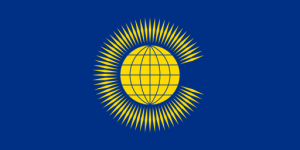 I have just sent off my submission to the Commons Select Committee on Political and Constitutional Reform in response to their inquiry on the future of devolution in the United Kingdom, in the light of the referendum result.
I have just sent off my submission to the Commons Select Committee on Political and Constitutional Reform in response to their inquiry on the future of devolution in the United Kingdom, in the light of the referendum result.
The Committee’s terms of reference are as follows:
- Should England, Wales and Northern Ireland be offered the level of devolution that has been discussed in relation to Scotland?
- If so, what should be the next stages to take forward devolution in a) Scotland, b) Wales, c) Northern Ireland, d) England?
- To what extent is the Government’s timetable for considering the future of devolution realistic?
- What measures, such as a written constitution, could most effectively entrench future devolution settlements?
- Given that different parties have put forward different proposals for further devolution to Scotland, what is the best way forward?
- What implications does further devolution to Scotland have for how the House of Commons should deal with legislation that deals with only part of the UK?
My submission was as follows:
Further devolved powers, broadly equivalent to those discussed in relation to Scotland should be offered to the people of England, Wales and Northern Ireland;
A UK constitutional convention involving genuine non-party political participation from all areas of civic society across all 4 nations should be established to consider the details of the further devolution of legislative and executive power;
An English Assembly should be established to exercise devolved power for the whole of England and should be located in Liverpool, Manchester or Newcastle as a concrete demonstration of decentralisation of power within the United Kingdom;
The House of Commons should continue as the Parliament of the United Kingdom in relation to reserved matters only, such as defence and foreign affairs, with a change to proportional representation so that the make up of Parliament reflects the will of the people of the United Kingdom;
The House of Lords should be reformed as a democratically elected – but non party political – body to act as a revising chamber considering and making (non-binding) recommendations in relation to legislation from the House of Commons, the Scottish Parliament and the Assemblies in England, Wales and Northern Ireland;
The UK Supreme Court should continue to have jurisdiction in relation to any devolution issues which arise in respect of disputed competencies or overlaps of powers between legislatures.
The deadline for written submissions is the 23 October 2014, and you can make yours by following the link above.








